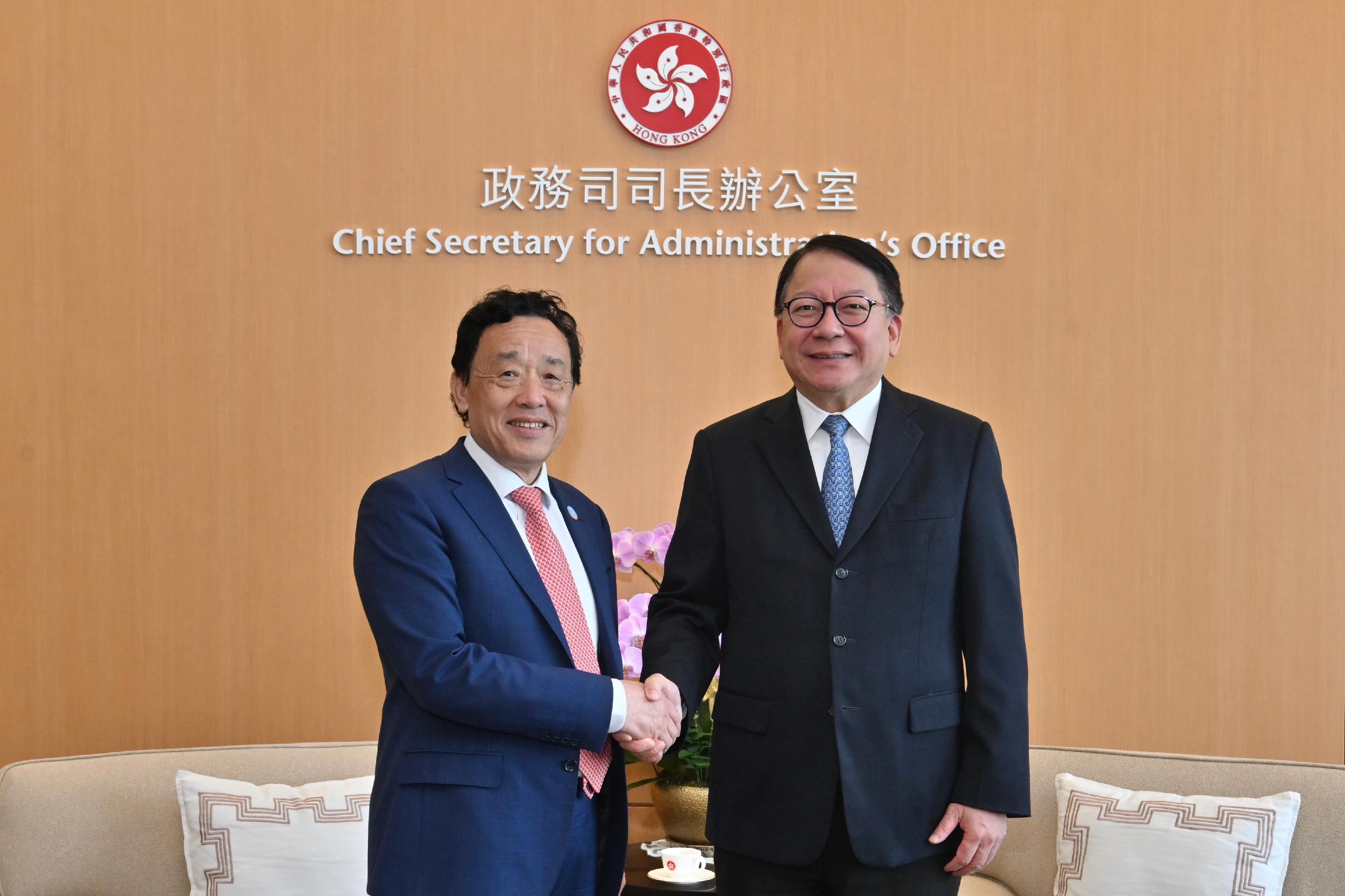
HONG KONG - Hong Kong Special Administrative Region (HKSAR) Acting Chief Executive Eric Chan Kwok-ki said on Monday that he looks forward to greater cooperation between Hong Kong and the Food and Agriculture Organization (FAO) of the United Nations to contribute further to global food security and sustainable development.
Chan made these remarks while meeting with Qu Dongyu, the visiting director-general of the FAO, during which he welcomed Qu's visit to Hong Kong with his delegation.
ALSO READ: HK set on filing WTO complaint despite parcel post resumption
Noting that the FAO has been leading international efforts to eradicate hunger, Chan emphasized that the organization plays a pivotal role in global food security by promoting the development of distinctive agricultural products in various countries and regions, advancing the development of fisheries and aquaculture, and preventing and controlling major animal diseases. Its achievements are widely recognized, Chan said.
He said that Hong Kong is promoting the upgrading and transformation of its agriculture and fisheries industry towards modernization and sustainable development, adding that the Blueprint for the Sustainable Development of Agriculture and Fisheries, formulated in Hong Kong earlier, has also set out specific work targets in this regard.
READ MORE: FAO official: UAE plays pivotal role in enhancing food security, sustainability
In addition, Chan noted that Hong Kong has consistently engaged in various collaborations with the FAO. For example, the Agriculture, Fisheries and Conservation Department earlier participated in drafting a series of FAO guidelines on African Swine Fever to assist smallholder pig farmers in Asia in responding to the disease, and the relevant guidelines have now been widely adopted by Asian countries and regions.


